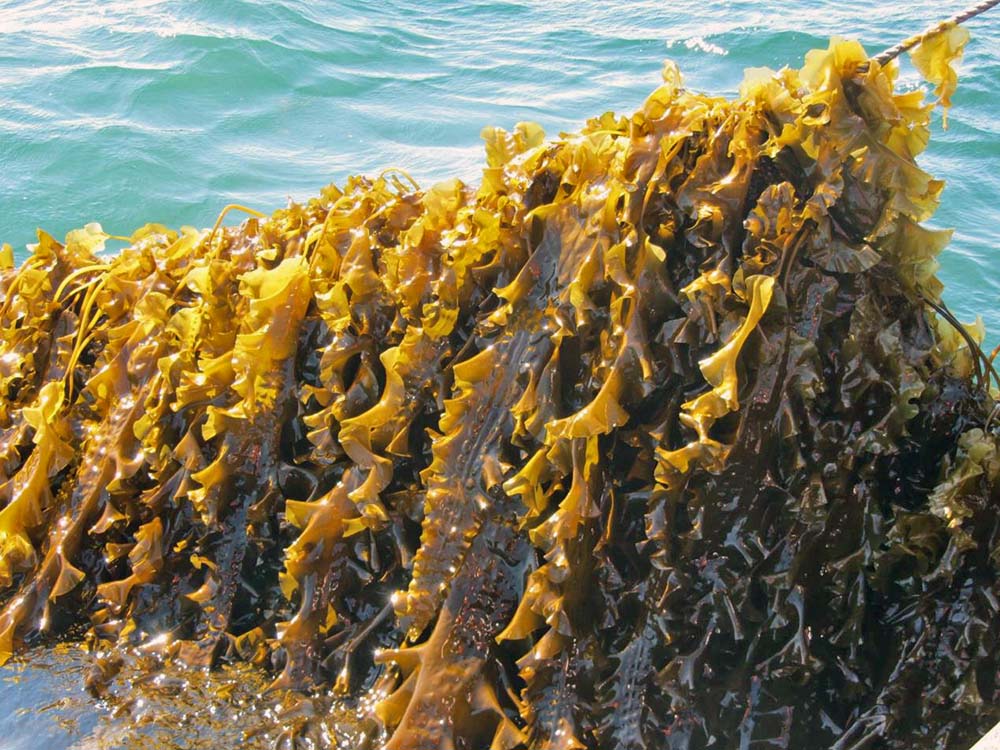11 Nov 2021
Scientists at the Institute for Global Food Security at Queen’s University Belfast are to feed seaweed to farm animals in bid to help slash methane by at least 30%.

UK and Irish seaweeds may significantly reduce greenhouse gas agricultural emissions and provide extra health benefits when used as a supplement for farm animals. Image © Wolfgang Hasselmann
Scientists at the Queen’s University Belfast are to feed seaweed to farm animals to help in efforts to slash methane emissions by at least 30%.
As the methane debate at COP26 continues, and the US and UK pledge to reduce agricultural methane outputs from ruminant animals by a third by 2030, the university’s Institute for Global Food Security (IGFS) said it had already seen promising results by adding native Irish and UK seaweeds to animal feed.
Research in Australia and the US had shown an 80% reduction in methane emissions with supplementing red seaweed varieties, but although the seaweed is abundant, it contains high levels of bromoform, which damages the ozone layer. Brown or green seaweed indigenous to the UK and Ireland does not contain bromoform.
The indigenous seaweeds are rich in compounds including phlorotannins, also found in red wine and berries, which are antibacterial and improve immunity.
The IGFS is moving into the seaweed research field, with trials beginning on UK beef farms in a three-year project announced with supermarket Morrisons, and involving the Agrifood and Biosciences Institute (AFBI) in Northern Ireland.
A second project will involve the IGFS and AFBI joining a €2 million (£1.71 million) project led by Irish agency Teagasc to monitor the impact of seaweed in the diet of pasture-based livestock. The projects will also assess nutritional value and impact on animal productivity.

Sharon Huws – IGFS lead, and professor of animal science and microbiology at the School of Biological Sciences – said she hoped the combined research would evidence a reduction in greenhouse gases of 30%.
She said: “The science is there. It’s simply a matter of providing the necessary data and then implementing it.
“Using seaweed is a natural, sustainable way of reducing emissions and has great potential to be scaled up. There is no reason why we can’t be farming seaweed – this would also protect the biodiversity of our shorelines.
“If UK farmers are to meet a zero-carbon model, we really need to start putting this kind of research into practice. I hope the IGFS and AFBI research can soon provide the necessary data and reassurance for governments to take forward.”